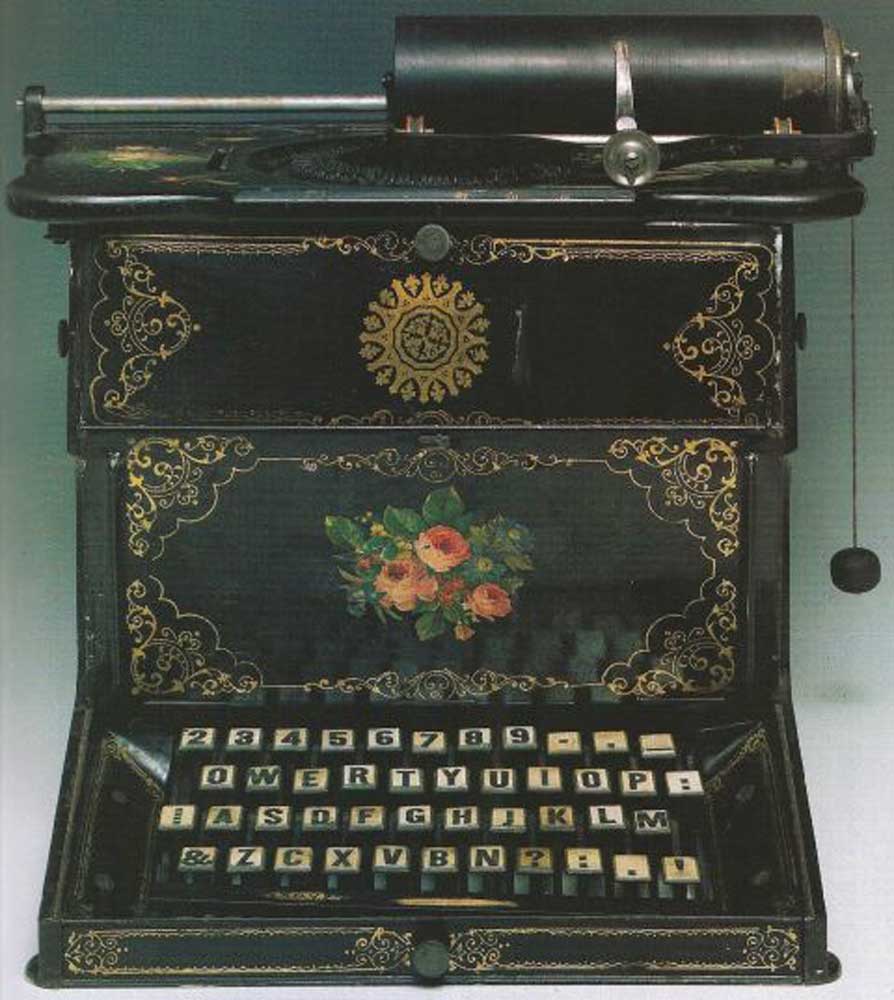Southern Exposure: What’s a typewriter, grandpa?
Published 8:00 am Monday, February 25, 2019

- Twain’s typewriter. Ah, things were so much simpler then.
I had something of a jarring journalistic moment the other day.
Trending
A woman called — on the telephone — and said, “I want to drop off a letter.”
I said, can you email it?
She said that she doesn’t have a computer.
Trending
I told her that we didn’t have the office staff to re-input a typed or handwritten letter. Letters need to be submitted via email, verified and adhere to a number of principles.
Fifty years ago someone at the front desk would have welcomed the letter writer into the office, taken the handwritten sheets and typed it before delivering to the managing editor, who would pass it to the editor, who would have then passed it to the assistant editor who would type the document and then sent it to the copy editor before going back to the editor.
Ah the good old days. Reader’s Digest founder and publisher DeWitt Wallace sent employees anywhere they wanted to go once a year, on the thought that they would become better, more well-rounded human beings as a result.
Digest commuters from throughout the New York Metro area could ride to work on company buses to the bucolic offices in Pleasantville. Even though the office was technically in the town of Chappaqua, Wallace preferred the soporific “Pleasantville” postal address. Each May, Fridays became holidays, so workers could tend to their gardens.
Type a letter? There were 25 bodies waiting with carbon paper to make a correction.
When Spencer Tracy and Robert Redford portrayed real journalists, they inhabited small cities.
So there was an awkward pause on the phone.
Here was a woman looking to express herself to put pen to paper and share her thoughts. She wanted her ideas shared with the world, but was rendered mute without a computer. Why she didn’t have a computer — access? money? choice? — didn’t really matter.
Think about it: Shakespeare scribed; our Founding Fathers, Abraham Lincoln and everyone until Mark Twain decided to turn to the typewriter. He called it “the newfangled typing machine” after he saw a Remington in a Boston store window — in the 1870s.
Twain’s 1883 book, “Life on the Mississippi,” was the first literary work to be completed on the machine, Michael Rosenwald of the Washington Post reported last spring.
In small towns, journalism was a family affair. I was down at the Cannon Beach History Center and Museum recently as they kindly opened their archives to me, old newspaper predecessors to the Gazette.
The Cannon was the first on record, published by Jack and Jim Dennon in the late 1940s when a few hundred folks lived in town and street lights were a big issue. The Cannon started as a Cannon Beach student newspaper — this was before Cannon Beach merged with the Seaside School District — with mimeographed headlines in cursive script.
In the 1990s The Upper Left Edge, under the supervision of “Editor/Publisher/Janitor The Beloved Reverend Billy Lloyd Hults,” was an exquisite work of art. Headlines read: “Put your good where it will do the most,” and “Jerry Brown for President.”
It is the physical appearance and tactile experience that makes print so seductive.
Ironic that it would take America’s greatest writer, Mark Twain, to alter technology inexorably.
Typewriters gave way to teletype and fax machines and telexes and bits and bytes, PCs, iMacs, iPhones and apps. Talk about a tsunami, but these took place every generation, then every decade, every year, every second.
I gave up my own beloved Hermes 3000 typewriter — so iconic that author William Kotzwinkle wrote a book with the same title — for good in the early 1980s when I got my first personal computer, an AT&T 6300 with dual 5¼-inch floppy disk drives. It’s probably worth something — at a museum.
Public works employees recently dug up a 50-year-old time capsule buried underground at the Tolovana Arts Colony. A new capsule was boxed and stored at Whale Park at a celebration on Feb. 14. History goes by quickly. When 2069 comes, those of us still alive may say, “I remember the Internet.”
Their descendants will say: “There you go again, grandpa.”
Letters should be exclusive to the Cannon Beach Gazette, should be fewer than 350 words and must include the writer’s name, address and phone number. You will be contacted to confirm authorship. All letters are subject to editing. Letters written in response to other letter writers should address the issue at hand and, rather than mentioning the writer by name, should refer to the headline and date the letter was published. Discourse should be civil and people should be referred to in a respectful manner. Letters in poor taste will not be printed. Send letters to editor@cannonbeachgazette.com or via our online form at cannonbeachgazette.com.





